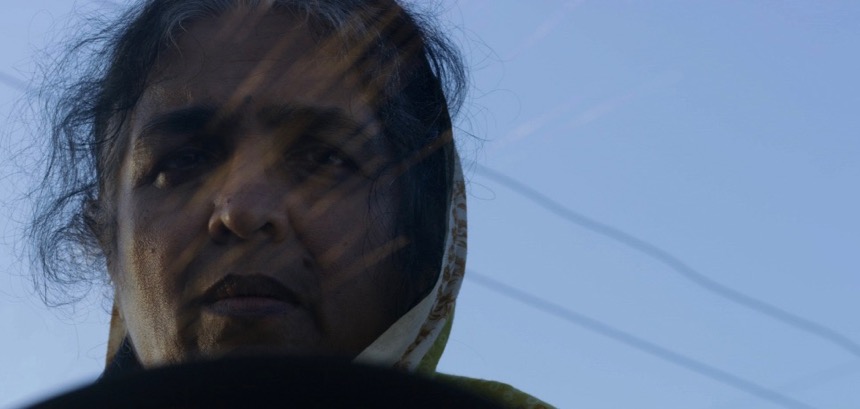Busan 2017 Review: Indian Revenge Drama AJJI is a Battlecry for Justice
Devashish Makhija directs Sushama Deshpande, Abhishek Banerjee and Sharvani Suryavanshi.

When a ten-year-old slum kid is brutally raped and left for dead, her elderly grandmother takes matters into her own hands. Fuelled by a lifetime of oppression and injustice, trapped in a social hierarchy in which the rich and powerful are untouchable, “ajji” (literally "granny") vows to have her revenge.
Written and directed by Devashish Makhija, a successful short filmmaker whose only previous feature is 2013's Oonga, ajji takes a straightforward revenge story and infuses it with savage social commentary. Living on the fringes of society, eking out a living however they can - even if that means breaking the law - ajji’s family are ordinary, hardworking people. But when young Manda (Sharvani Suryavanshi) is violated, they all suddenly fall under the scrutiny of the police.
Almost immediately, the girl identifies her attacker as Dhavle (Abhishek Banerjee), the loathsome son of a local politician. But rather than question him, the police pry into the lives of Manda’s parents, reprimanding them for illegally selling street food and taking overlong factory shifts. The family cannot even afford proper medical treatment for the victim, and her life hangs by a thread throughout the film.
What sets Makhija’s film apart is how moments of extreme violence, exploitation or depravity creep into the frame without any kind of warning. Seemingly ordinary sequences, such as a police officer questioning Manda about her attack, suddenly shifts into a humiliating act of perverse degradation, where everyone - audience included - is helpless to react.
Perhaps the film’s most disturbing and memorable sequence involves Dhavle and a mannequin. Brilliantly detailing Manda’s ordeal without actually showing any of it, Makhija’s unflinching camera holds on Dhavle and his equally repugnant friend as they drunkenly dance with and molest a department store dummy. What at first seems idiotic and embarrassing for those concerned, steadily becomes more and more disturbing. By the end, the blank expression of the mannequin’s lifeless eyes will haunt you for days.
The film’s heart and soul, however, is Sushama Deshpande, whose commanding central performance appears to be the first such role for the veteran actress. Ajji has lived a life of hardship and suffering, but treasures Manda more than anything else. With her health beginning to fail - especially her knees - ajji knows she is not long for this life. When the police refuse to help, and her own children cower away from any responsibility for fear of being incriminated themselves, she goes it alone. Enlisting the help of a prostitute and a butcher, ajji begins honing the skills she will use to have her revenge, and the slow build up pays off brilliantly in a climax that is as shocking as it is inevitable.
A far cry from the glossy song and dance routines of Bollywood’s mainstream output, ajji presents a viewpoint of contemporary India as seen from the gutter. These people live on the bare essentials, surrounded by garbage, sewage and are all too often treated as such by those with any semblance of authority or privilege.
In a culture where rape is fiercely prevalent and victims are silenced or ridiculed rather than supported and protected, ajji is a scream for justice and respect, a battlecry for humanity and equality. That it also delivers as a bold and shocking revenge thriller only further elevates ajji’s position as one of the must-see Asian indies of the year.

Do you feel this content is inappropriate or infringes upon your rights? Click here to report it, or see our DMCA policy.






